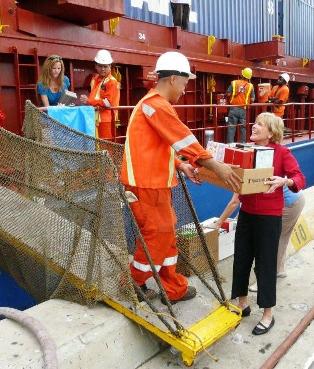The concept of rest hours and working hourson board ships is probably overrated. People from the industry have lately been harping on thorough implementation of rest and working hours’ regulations on board ships. However, the fact is those working on ships already know how to manage these hours quite well, irrespective of any document or regulations stating the same.
Going by the rest and working hours’ regulations, “rest” on board ships technically means sleep. However, working conditions on ships are way too different. In a planned sort of work, one can have planned hours of sleep, but in case of a breakdown or some problem, even if one is sent to sleep, he won’t be able to do so as his mind would be over-engaged with the existing problem.
The implementation of MLC 2006 is undoubtedly meant to benefit the seafarers, but in formulating certain provisions, they have gone overboard without realizing that the best people to make and enforce such rules for resting hours are those who are working on board ships. Though these rules would surely help seafarers globally to a certain extent, the truth is even without these rules; maritime professionals working on ships surely know how to look after each other without any one telling them how to do so.
Seafarers on board ships are good at keeping a track of working hours of their fellow mates. If a person has been working continuously, his colleague wouldn’t hesitate to take his place and ask him to come back after a certain period of time. On the other hand the relieved person would happily accept the concern shown by his colleagues and in most of the cases turn up earlier as he would be concerned about his colleague and also about the job that the other guys are doing and the stuff he’s missing out on.
Also, one cannot expect every shipping document to be perfect. People need to understand that more than the document it’s the spirit of a particular provision that is more important. It is not necessary that MLC 2006 would be written by people having long experiences of shipboard work. Thus, we shouldn’t be afraid to modify, adjust and innovate, but of course within limits.
Rest and working hours violations are serious. If rest hours are not given at all repeatedly or if there is dissatisfaction among seafarers, then it is a serious matter. But if a certain number of “Xs” are not put on the excel sheets, it shouldn’t be considered an issue to be concerned about. Presently on most of the ships, the juniors sit down on a certain day and affix crosses (“x”) on working hours sheets of all professionals, obtain their signatures, and stack them in fat files. Needless to say, most of the seafarers consider these rules just a formality, which needs to be done away with whenever required.
Many a times seafarers on ships get overworked, say, when calling Singapore port( example) for taking fuel oil and lube oil bunkers, provisions, stores and spares during a limited port stay. They manage all these jobs along with the inward and outward maneuvering of the ship in the port. This increases their working hours substantially. However, seafarers have always been managing such jobs sportingly and with the right spirit. They then compensate later by catching up on sleep when the ship is in open seas. When such habits occur naturally to a seafarer, one need not bother too much about the quantum of “X” marks on certain sheets related to working hours documentation.
Thus, in spite of all the regulations enforcing controlled rest and working hours for seafarers on ships, the right work-life balance on ship is achieved by the seafarers themselves who perfectly know how to adapt to any kind of working condition.
Having said all this, if the whole issue of rest hours is considered from a different angle, fatigue and stress on board ships, in many cases, is the result of incompetence and bad habits. A competent and skilled seafarer, who loves his job, is rarely seen complaining of fatigue. Hours of work and hours of rest are simply meaningless for such seafarers.




No comments:
Post a Comment